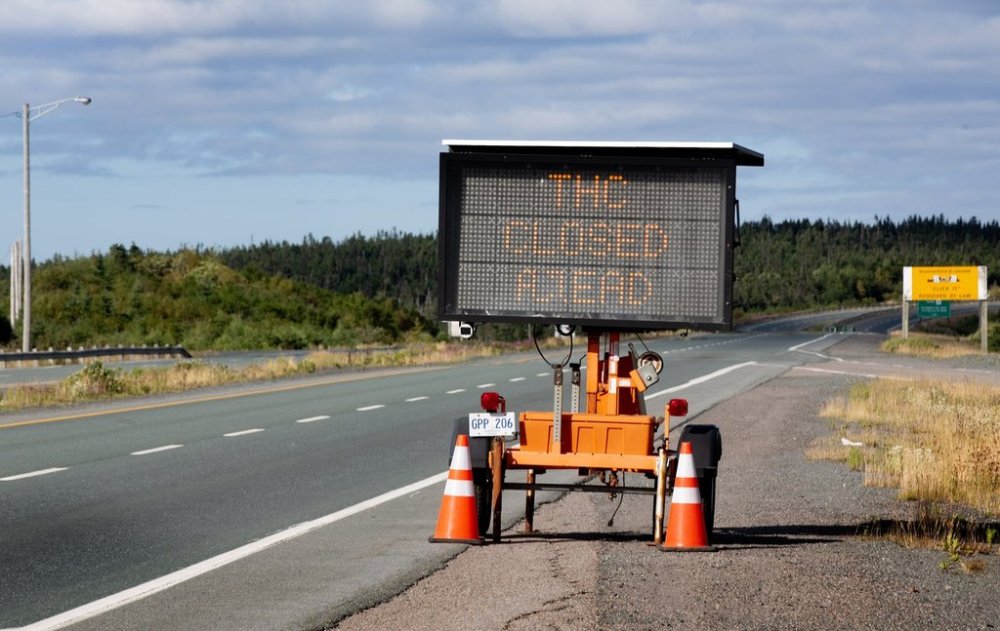Entertainment
Wildfire Responsibility: Governments and Citizens Face Off

As climate change exacerbates the risk of wildfires across Canada, a significant debate has emerged regarding the responsibility for preventing such disasters. The question looms: should the onus fall on government entities or individual citizens? This discourse gains urgency as wildfires have ravaged many parts of the country, including regions that traditionally experienced lower fire risk, such as the Atlantic provinces.
Government Restrictions Amid Rising Fire Risks
This summer, Nova Scotia and New Brunswick enacted strict measures to mitigate wildfire risks. Provincial governments have prohibited activities such as hiking, fishing, and using vehicles in wooded areas, in addition to existing bans on open fires. These actions come as both provinces grapple with multiple wildfires threatening communities. Public responses to these restrictions have been mixed, with many expressing confusion and frustration, claiming that such measures infringe upon their personal freedoms.
Jennifer Baltzer, a biology professor and Canada Research Chair at Wilfrid Laurier University, emphasized the necessity of government-imposed restrictions in light of increasingly severe weather patterns. “As we experience conditions on the ground that are riskier, people are going to have to modify their behaviour to help mitigate potential accidental ignitions,” Baltzer stated in a recent interview. Yet she also pointed out that governments must address the root cause of the escalating fire seasons: climate change. “We really need to be implementing much stronger climate change mitigation policies than governments currently are,” she added.
Calls for Long-Term Solutions
Following the implementation of restrictions in Nova Scotia, the Ecology Action Centre, based in Halifax, criticized these actions. The organization urged the provincial government to adopt a more strategic approach to wildfire risk, advocating for long-term investments in sustainable forestry management and increased funding for local fire services. “Serious moments demand thoughtful, long-term responses — not blunt tools and heavy-handed bans,” the centre stated via social media. This sentiment reflects a growing concern about whether such restrictions are merely temporary fixes rather than solutions to underlying problems.
Executive Director Maggy Burns expressed the need for a comprehensive plan addressing the climate crisis. She noted that while restrictions may be necessary to maintain safety, Nova Scotians deserve a well-communicated strategy to tackle the ongoing climate emergency, including wildfire management. “Hot and dry conditions are a reality that is not going away,” Burns remarked.
On a national level, Michelle Rempel Garner, a Conservative Member of Parliament from Alberta, criticized both provincial restrictions and the federal government’s perceived inaction on the wildfire issue. During a press conference in Ottawa, she expressed empathy for the fears of residents in the Maritime provinces while underscoring that restricting personal freedoms is not an appropriate response. “What the Liberal government has done by their inaction has conditioned Canadians to expect that the only response they can see out of their federal government is to restrict their movement,” she stated.
In response to these criticisms, Nova Scotia Premier Tim Houston defended the restrictions, emphasizing public safety as the primary concern. At a press conference, he remarked, “We’re only concerned with keeping people safe. We’ll do what’s necessary to protect lives, and that’s what we’re doing in this case.”
As the wildfire risk continues to intensify, experts like Baltzer believe that Atlantic Canadians may need to adapt to new norms concerning wildfire prevention. She suggests that individuals can take proactive measures to reduce fire risks around their homes, such as clearing flammable materials and thinning forested areas. “Across the country, we can expect wildfire to become a more important issue that we’re all going to have to be dealing with as the climate warms and dries,” she noted.
In conclusion, the ongoing debate over responsibility in wildfire prevention highlights the complex interplay between government action and individual accountability. As climate conditions evolve, both sectors will need to collaborate closely to forge effective strategies that can protect communities while addressing the broader implications of climate change.
This report by The Canadian Press was first published on August 15, 2025.
-

 Politics4 weeks ago
Politics4 weeks agoSecwepemc First Nation Seeks Aboriginal Title Over Kamloops Area
-

 World5 months ago
World5 months agoScientists Unearth Ancient Antarctic Ice to Unlock Climate Secrets
-

 Entertainment5 months ago
Entertainment5 months agoTrump and McCormick to Announce $70 Billion Energy Investments
-

 Science5 months ago
Science5 months agoFour Astronauts Return to Earth After International Space Station Mission
-

 Lifestyle5 months ago
Lifestyle5 months agoTransLink Launches Food Truck Program to Boost Revenue in Vancouver
-

 Technology3 months ago
Technology3 months agoApple Notes Enhances Functionality with Markdown Support in macOS 26
-

 Lifestyle3 months ago
Lifestyle3 months agoManitoba’s Burger Champion Shines Again Amid Dining Innovations
-

 Top Stories2 months ago
Top Stories2 months agoUrgent Update: Fatal Crash on Highway 99 Claims Life of Pitt Meadows Man
-

 Politics4 months ago
Politics4 months agoUkrainian Tennis Star Elina Svitolina Faces Death Threats Online
-

 Sports5 months ago
Sports5 months agoSearch Underway for Missing Hunter Amid Hokkaido Bear Emergency
-

 Politics5 months ago
Politics5 months agoCarney Engages First Nations Leaders at Development Law Summit
-

 Technology5 months ago
Technology5 months agoFrosthaven Launches Early Access on July 31, 2025



















